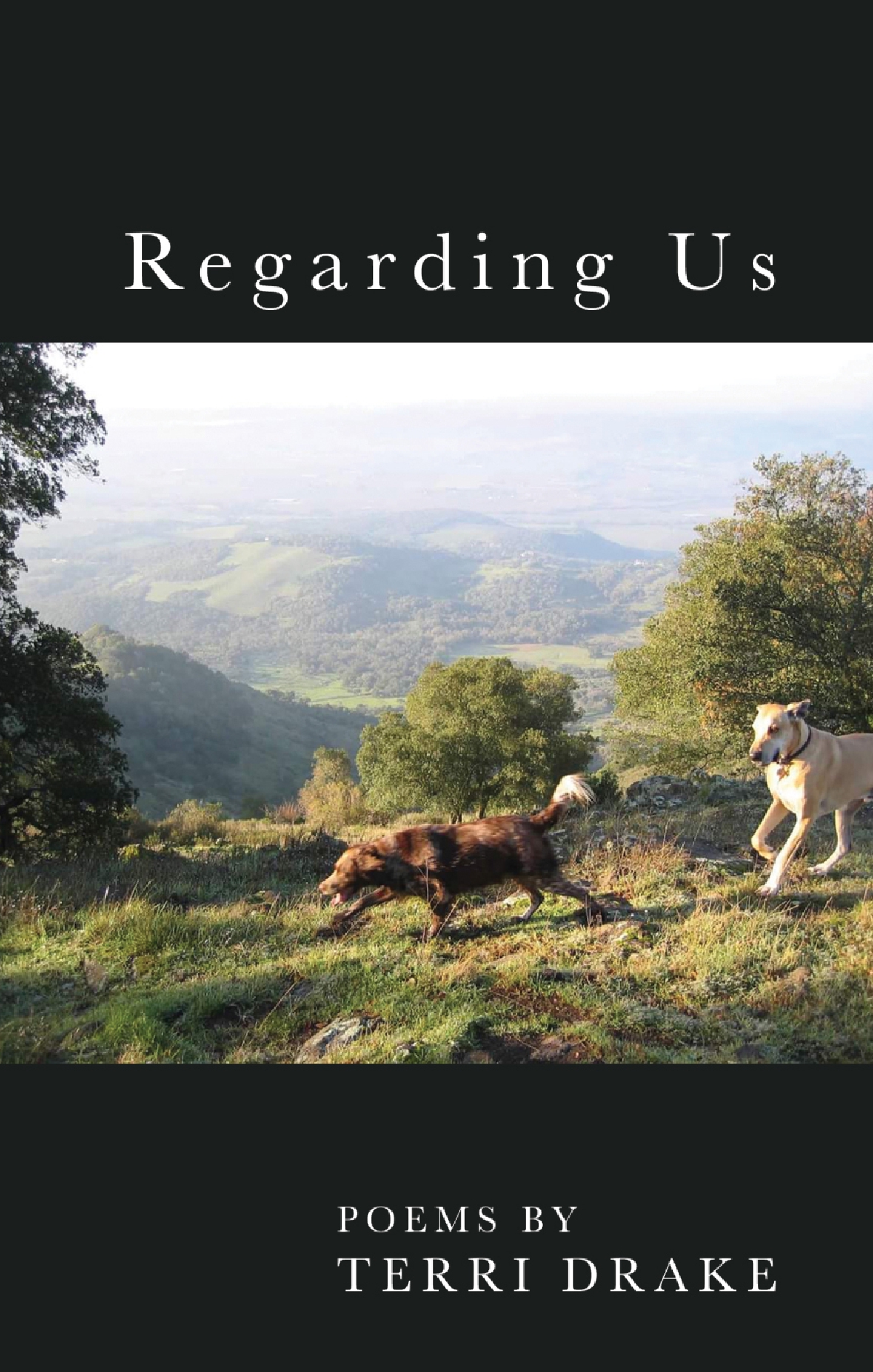
What the River Knows
In life, we love. In death, we love. Love is never vanquished by death but is always irreparably altered by it. Terri Drake’s poetry collection Regarding Us examines the substance and spirit of such loss, and grapples with the reality of life that follows. Through thirty-one connected poems, Drake questions, examines, and holds grief to the light. She studies the cracks, the places warped by pain, the places turned bitter by unrequited possibility. Within these words exist the history of a love story. The history of a life.
Each poem is comprised of no more than a few stanzas, as if to accentuate the staccato of grief: bursts of pain, of clarity, all wrought by the loss of a beloved. The collection begins with the titular “Regarding Us,” a message from Drake to the reader that this is an invitation—an invitation to witness the intimacy of a private we; the us that is two halves separated by death. The reader, then, is a they: a bystander, momentarily allowed inside this tender, intimate love story and the private, painful journey of bereavement.
Although Drake’s poems grapple with the death of poet Jane Mead, her questions remain universal. What of the ones left behind by death? Where do we go when we cannot (yet) follow? What of the ghosts that live in our memories, that haunt our waking hours and perpetuate the breaking of our hearts? Death, in this way, is not an ending. When one part of a whole remains behind, the love story continues. Death is an insurmountable shift, as fluid and powerful as a river.
And such a river is crucial to this collection. Drake’s single narrator often finds herself on the banks of the river, wades into the water, pleads for answers as if the river itself is the only tether she has to the reality of change and to the past. The river is a connection between the physical and the spiritual; at times an intimate confidant, but also existing “without mercy or thought,/what it carries.”
Drake grapples with the physical body and its connection to the spirit—the last four poems of the collection are all contemplations of lust, love, absence: locks of hair, offers to an altar, images of grief. With death is permanence. While this means that death is irreversible, it also means the past is irreversible, too. The narrator finds solace in this fact: with death, there cannot exist a past in which these souls were never together.
Drake plays with past and present, repeated images, and recurring characters within this singular narrative voice. “River, We Must Begin,” “The Ghost House,” and “Iowa City” recount the traumatic past of the deceased and repeat the idea of “muteness.” One gets the sense that Drake, here, has a pointed aim. The little girl is mute from isolation; the woman she grew to be muted through death. Through the narrator’s own words, she can offer solace and comfort to the small, lonely girl in the ghost house and profess her love to the woman who has died. Words for words, words for a life. The narrator reaches across the barriers of time and chronology to say I am here. You were here. You will be loved, and you will find your voice.
One feels Drake’s grief in her poems; still fresh, the wound not completely healed. There is raw truth in the words printed on these pages, not mere imagination. Drake’s poetry is an answer to the call of Mead’s own poetry: a continuation of the river, a continuation of love. The last line of the last poem: “I go everywhere calling their names” (“As If My Longing Could Conjure”). This applies to Mead’s dogs and to the life she once lived: Drake will continue telling Mead’s story; will continue to sing of her life and her existence, will continue calling into the void.
Regarding Us is for anyone who has suffered a loss: that is to say, every one of us. The push and pull of joy and sorrow, of past and present, of dreams and reality: Drake’s work serves to remind us of the longing so imbued in the human condition.
We all wade into the river. We all feel the power of its current. We often mistake our place in this world; our temporal experience so misaligned with our ideation of death and what comes after. Drake’s collection brings us back to the riverbank, again and again; her poems a cry into the night, an echo of grief, a search for footing.
Regarding Us is available from Finishing Line Press.